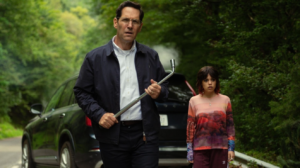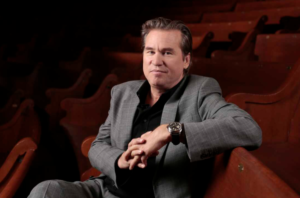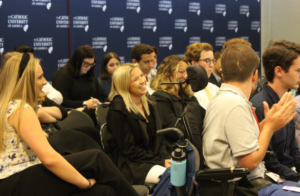Interview with Eleanor Holdridge: Director of Darius and Twig

By Stephen Fasulo II
Eleanor Holdridge is the Head of Directing at The Catholic Univeristy of America and a Producer of Hartke Stage. She is directing an adaptation of Walter Dean Meyers’ Darius & Twig, adapted by Caleen Sinnette Jennings and featuring Catholic University alumni Latia Stokes. The play is a part of the Theater for Young Audiences and the Women’s Voices Theater Festival. This is her second collaboration with Jennings after Queen’s Girl in the World, another part of the Woman’s Voices Theater. The Tower was able to sit down and speak with her about the play.
THE TOWER: So you’re debuting the world premiere of a play?
ELEANOR HOLDRIDGE: That’s correct. It’s an adaptation of a Walter Dean Meyers book, Darius and Twig. He died last year but he was a very prolific author that wrote stories about young black men, men of color, people who came from poverty, people who have no voice, and gave them a voice through his fiction. For the Kennedy Center to take this on is continuing to give a voice.
T: So you’re working with a graduate of CUA?
EH: Yes! Latia Stokes.
T: So what is it like, working with someone who went to the University?
EH: It’s really great, I love it. I directed her 2 or 3 times when she was a student here at Catholic, and I very much admire her work. Last year, she worked on a play, The Revolutionist, that I did, and she was really wonderful with new plays and the development process, asking great questions, and bringing a lot of curiosity and passion, and so when I was auditioning, I asked her to audition, because I like working with her, and she aced it, and I was happy to cast her.
T: So is this your first time directing at the Kennedy Center?
EH: Yes.
T: How do you feel about that? Are you nervous, because this is a very notable venue?
EH: No I’m not nervous- well, not nervous about that. The Kennedy Center is full of great people, they’re really supportive. But I am a little nervous about doing theater for young audiences, because I’ve never done theater for young audiences before. I’m hoping that my lack of experience in this particular genre is ameliorated by my passion for the piece and my knowledge that- I guess I think as a director you have to tell a story and I think this is a very strong story I have to tell.
T:Because this is a world premiere, the play doesn’t have the long history of some other plays. There is no definitive role. Do you think the lack of a history will affect the play?
EH: I do think that affects it. As the play is cat, the actors will shape what the piece will become, and there’s no question the playwright changes the script based on what the actors in this first production bring to the text. I think that when plays are published, the first cast is included because they help make the play what it is on the page.
T: Because you are the first director, as much as they are the first cast, do you think how you put on this show will change how the show is performed in the future?
EH: I don’t know if it’ll change it, but it will affect it. I love do new plays because my work on the play, the conversations I have with the playwright about the structure of it, my work helps it become the thing it will be, and I’m proud I’m a part of the intrinsic structure, what it will become.
T: So you said you speak to the playwright, is there a dialogue between you two?
EH: Very much so. We know each other really well, this is our second piece we’ve worked on. We respond well to each other and we’re very respectful of each other’s opinions. You know she is the playwright, so ultimately it is her play, but I feel like I can just say what I think. That dialogue will benefit the both of us.
T: So there’s a give and take between you two.
EH: She’s a very collaborative artist.
T: If this play goes well do you see yourself working with [Caleen Sinnette Jennings] again?
EH: I think there is a potential for a tour of this production, which is exciting, but I’d love to work with her again, if the opportunity arrives.








